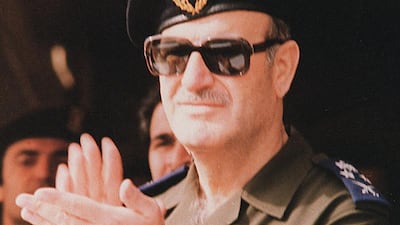Anyone who has spent time living in or studying the Middle East will be familiar with the work of Patrick Seale, who died last weekend in London after a battle with brain cancer. Seale was a journalist and long-term observer of the region and wrote what is still, two decades after it was published, the essential work on the Assad regime.
Syria dominated Seale’s life and work. He spent his formative years in the country, where his father was a missionary, during the brutal French occupation, and returned there often during his working life.
His views on Syria brought him initial acclaim and, as the uprising in Syria became a civil war, acute, passionate and personal criticism.
Critics focused on his defence of the Assad regime as a bulwark of stability. His belief that without Assad the country would fall to the Islamists looks true today.
But Seale made his prediction as far back as spring 2011, before foreign fighters were so entrenched. If it seems prescient today, back then it sounded like a defence of an indefensible regime.
My explanation has always been that Seale misinterpreted the origins of the Syrian civil war; that he was too willing to discount the groundswell of popular feeling among ordinary Syrians. In a sense, he did not believe sufficiently in the novelty of what Syria was witnessing.
Perhaps that isn’t surprising. Like other students of the brilliant Oxford historian Albert Hourani, Seale was acutely aware of the long shadow of history on the region.
He had also lived it: when he spoke of what might happen in the Arab world, he did so with the experience of someone who had seen what did happen. Seale, unlike many of the Western correspondents in the region, remembered an Egypt before Mubarak, a Syria before Assad and a Lebanon before civil war.
That breadth of knowledge and experience led him to the conclusion reached by other analysts who have lived through too many contortions of the Middle East (Robert Fisk and Thomas Friedman are two others): that explanations that had once applied would always apply.
Seale, who had seen first hand how France had manipulated Syria’s elites during the Mandate, and lived through the thunderous arrival in the region of the United States, came to believe what a generation of Arabs believed: that the peoples of the Middle East had little agency, that the decisions that affected their everyday lives were made above their heads in far-off capitals. (Even, sometimes, if those capitals were their own cities.) But while that was sometimes true, it wasn’t in 2011.
That is not because the Arab Spring or the Syrian civil war are entirely unprecedented events – history repeats itself, especially so in this region, where the ripples of the past take so long to fade.
But there are, sometimes, genuinely new events that occur outside the expected trajectories of current affairs. The Arab Spring was one. Yes, the old order sought to re-establish itself, and yes, other players entered into the maelstrom of the aftermath. But the origin, the chaotic centre around which the established power centres rotated, was new.
Seale was profoundly suspicious of those who wished the end of Assad, believing that they did so in order to weaken Syria and empower Syria’s enemies, particularly the United States and Israel.
Certainly, there are those who advocate the end of Bashar Al Assad’s regime on those grounds. But many of those in the same camp are there because they believe that, whatever happened prior to 2011, Assad’s decision to slaughter innocent civilians was a crime that could not be washed away in the name of geopolitics. Assad, they argue, had to go because of what he had done within Syria’s borders, irrespective of the effect of his departure without.
When critics of Seale say he whitewashed the Assad regime, I think they mean that he provided too much legitimacy to the government in Damascus simply because it had managed to cling on to power. He appeared to believe that only the regime could negotiate the end of the civil war, ignoring the fact that the regime had caused the civil war in the first place.
Seale and I debated that point on more than one occasion. The last time, around a year ago on the BBC, was after the current of the conflict in Syria had already turned towards the Islamists, although it was not immediately apparent. He opposed the drift towards intervention and insisted, even after the Assad regime massacred women and children in Houla, on allocating blame to both sides.
The charitable might say that Seale was thinking of the long-term regional implications of the toppling of what had been a very stable regime. He may even have recognised, more quickly than some of us, that the time for even a surgical strike to end the conflict had passed.
But the sadness – and for many Syrians, the bitterness – is that a man who so loved the country didn’t feel it was necessary to save it from the Assad regime at all.
The end of Seale’s long life – he would have been 84 next month – was thus cloaked in controversy. But that is part of the territory of writing about the Middle East. Seale was a diligent scholar and a popular author. His works remain essential to an understanding of the Middle East he was writing about. At the very end of his life, the region he had spent so long thinking about erupted into a new direction. But the man who had written the book on the Assad regime could not believe that the battle for Syria’s future had started a new chapter.
On Twitter: @FaisalAlYafai


